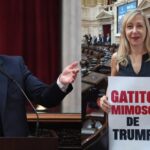
The people of Sri Lanka made history by electing, last Saturday (21), Anura Kumara Dissanayakea leader with Marxist leanings, as its new president. His victory represents a clear response to popular discontent with the political establishment that had dominated the country for decades. Promising to transform the debt-ridden nation, Dissanayake has pledged to reform Sri Lanka’s political system.
Dissanayake55, is seen as a “man of the people,” having grown up in a humble rural family. His campaign was marked by a sharp difference between him and his opponents, who belonged to traditional political dynasties known for corruption and generations of power. In Sri Lanka, this scenario is common in South Asia, where politics is often treated as a family business.
For more than two decades, the country’s politics were under the control of Rajapaksa dynastyuntil a severe economic crisis in 2022 brought down the then president Gotabaya Rajapaksa after large popular protests.
The campaign of Dissanayake was strongly based on criticism of corruption, which was seen as one of the main causes of the country’s economic crisis. His speech opening and transformation won the support of a population tired of a stagnant political system. Elected with the promise of a new era, AKDas he is known, stated in his victory: “This victory belongs to all of us“, reinforcing its commitment to popular demands.
Dissanayake leader of Janatha Vimukti Peramuna (JVP)a left-wing party that, despite not being a dominant force in Parliament – it holds only three seats out of 225 available – has been gaining momentum with its message of change. Although the JVP has a controversial past, with involvement in violent insurrections in the 1980s, the new president apologized for past mistakes and assured that his administration will be based on a policy clean and transparent. In his inaugural address, he stated: “We need to establish a new political culture… We will do our utmost to regain the people’s respect and trust in the political system.“.
Challenges ahead
Among the many challenges that AKD will have to face, the most urgent is the recovery of the country’s economy. Sri Lanka has suffered severely from the pandemic, which has damaged its two main sources of income: tourism and remittances from citizens abroad. The economic collapse has resulted in runaway inflation and shortages of essential goods, leading the country to declare a moratorium on its external debt in May 2022 for the first time in its history.
This scenario generated a national crisis, and the popular uprising known as aragalaya led to the fall of Gotabaya Rajapaksa. Since then, the country has obtained a loan of US$ 3 billion do International Monetary Fund (IMF)and there are signs that the economy is slowly recovering. Economic growth is expected to return in 2024, driven by a narrowing trade deficit and rising remittances.
Dissanayake is aware of the challenges and pressure he carries. Upon accepting the presidency, he declared: “I am not a magician, I am an ordinary citizen. My goal is to bring together people with knowledge and skills to help lift this country up.“His pro-working class, anti-elite political platform was essential to winning the youth vote and securing victory, but his government will have to balance public expectations for populist subsidies with the austerity demands of international creditors.
Sri Lanka’s new president will have a difficult task of navigating domestic and foreign interests, but his vision of transformation and commitment to the people bring hope for a better future for the country.
Source: https://www.ocafezinho.com/2024/09/24/sri-lanka-elege-um-presidente-marxista/

